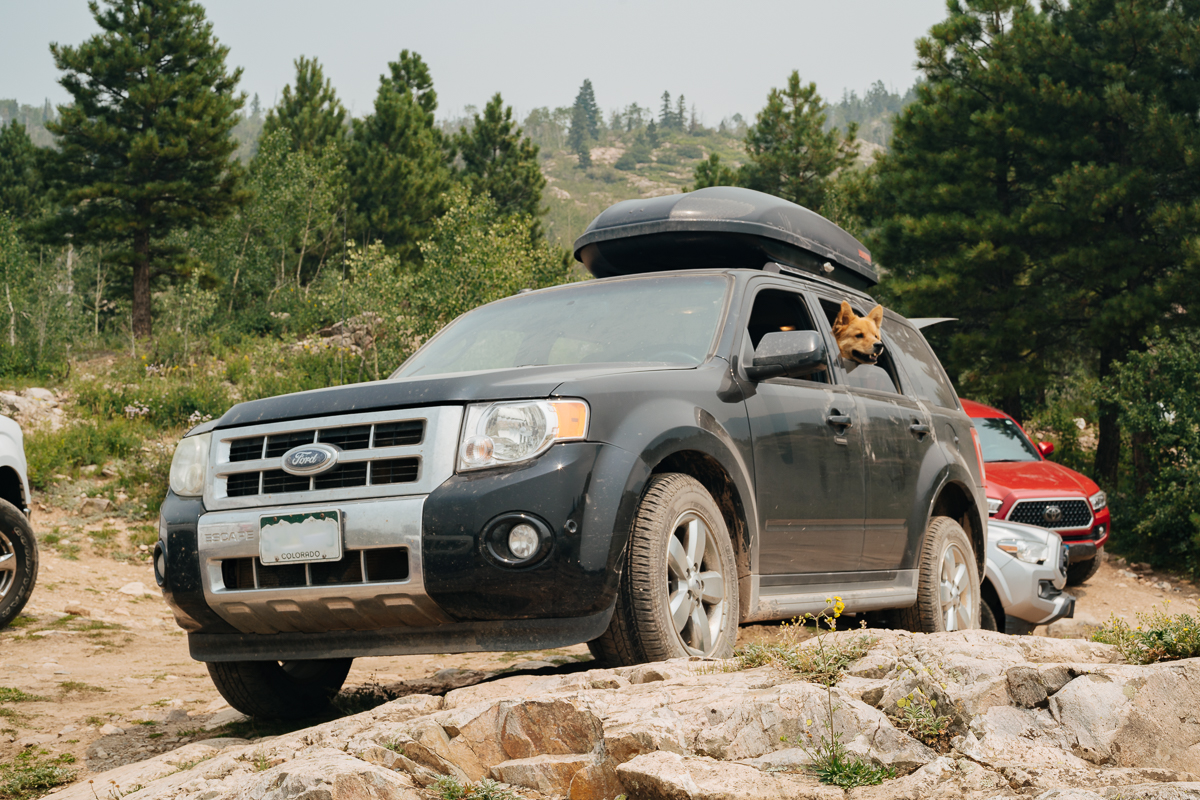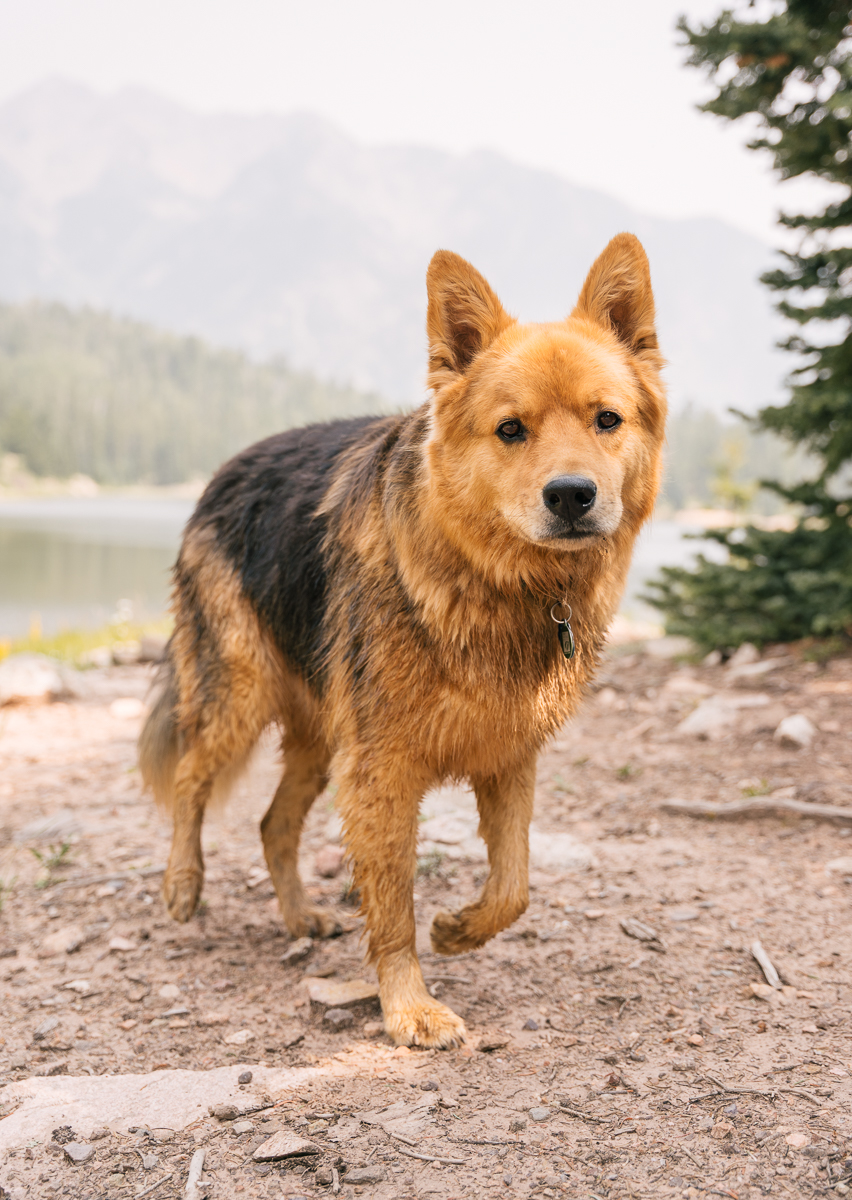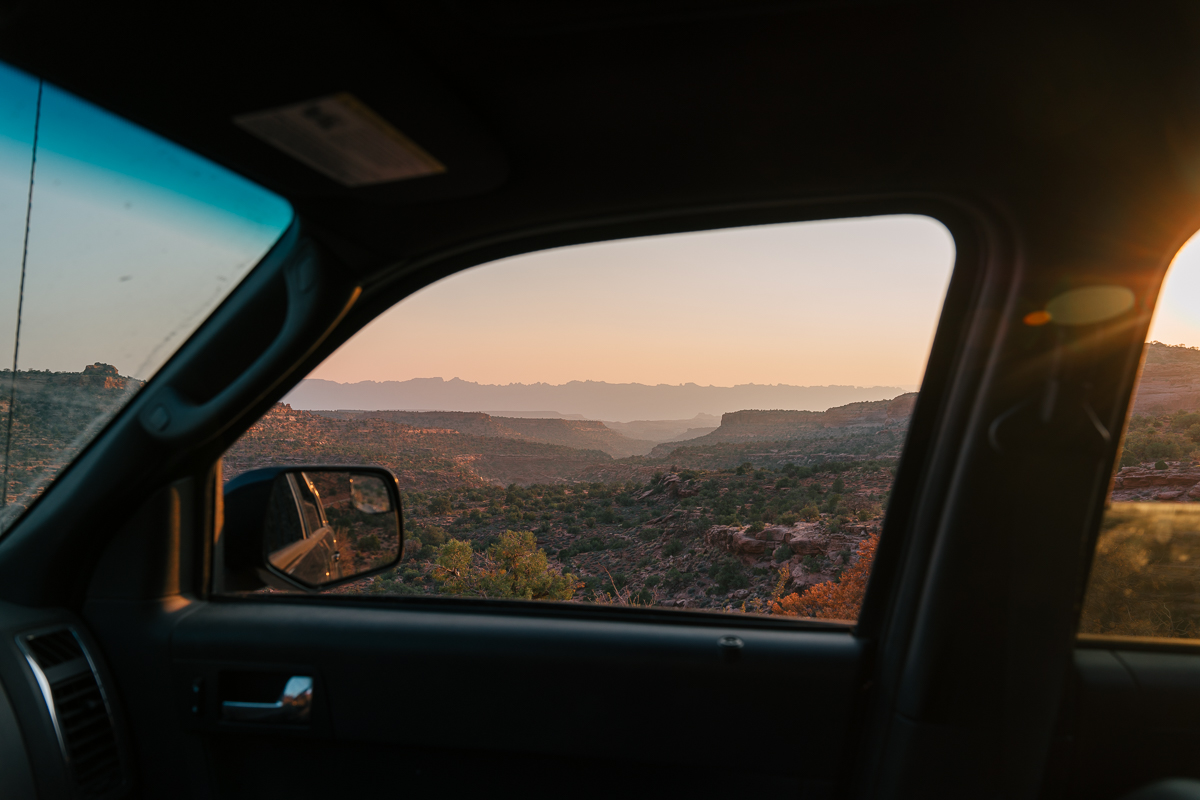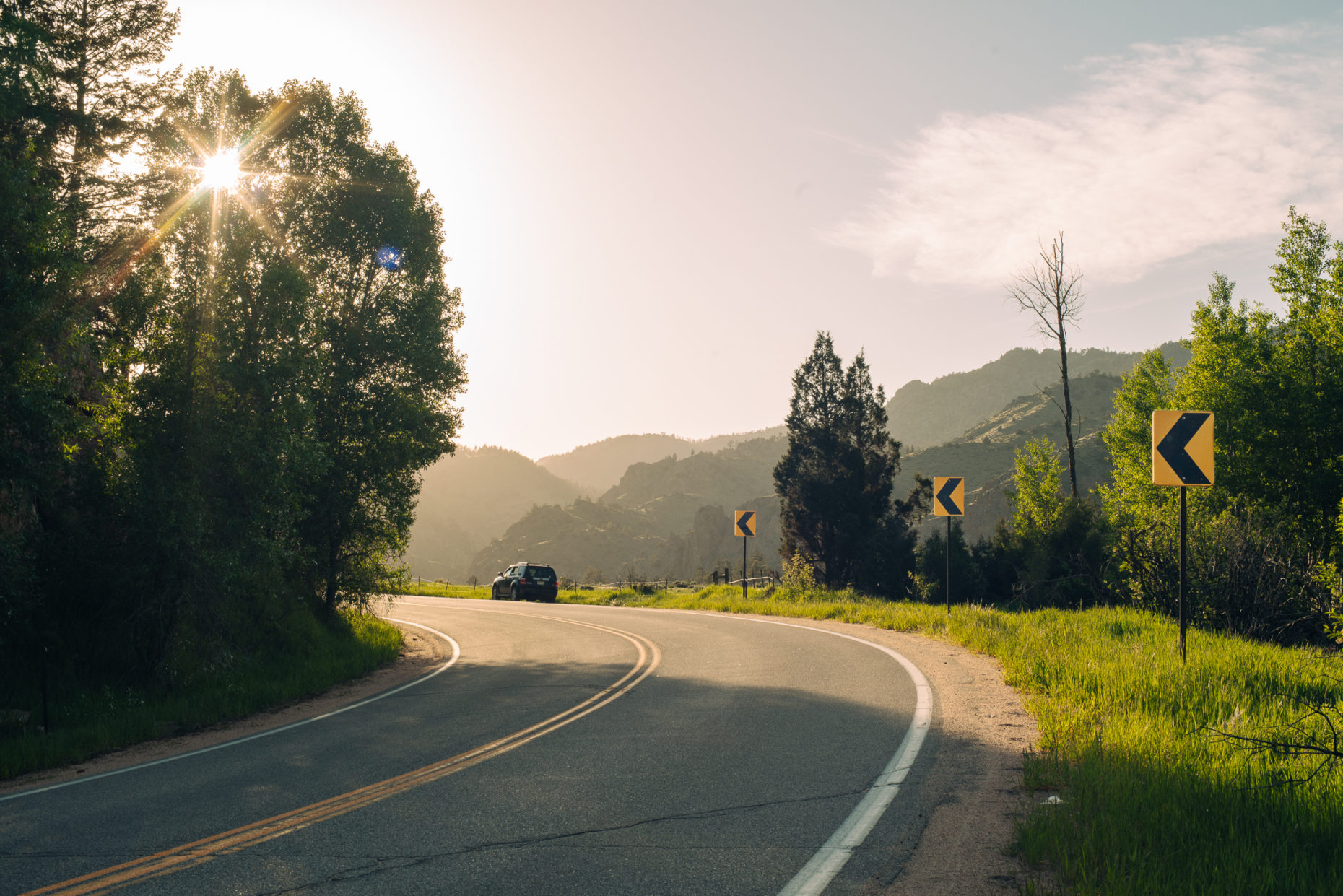Hey y’all,
Welcome to another Rambler, a postcard from the road you requested by filling out your information on the in-magazine card, tearing along the perforated edge, and sending back to us at headquarters. A special hello to you new readers who joined after I promoted this thing for once over on Instagram. Glad to have y’all along.
After writing about my travel rules last week and mulling over the idea of little guides to the places I visit, I realized I haven’t made it very clear where I’m at. So I’m experimenting with ways I can share simple progression to give you a sense of place. Rambler was never meant to be about accomplishing things but it could be fun to track some of the key info with each send. With that, here’s a quick update.
Currently: Durango, CO
Rules: Everything done except art gallery or museum.
Next up: Salt Lake City, UT
I’ve been to SLC once for a show, but it was such a quick weekend I’m essentially going in blind. If you have any recommendations send them my way. Per my rules I’ll be looking for local restaurants, coffee shops, breweries, and galleries or museums.
All right, to Steinbeck.
Traveling with Steinbeck
I love books that meet you where you are. When a book says just the right thing for where you’re at, whether physically or mentally, it has the power to change your life. I try to plan for this — in the backcountry I read nature and adventure writing, when in the desert I turn to Edward Abbey, in sadness it’s Murakami (maybe not the best decision, although fitting). Nothing is guaranteed, but teeing myself up this way has lead to many reading experiences that have left an indelible impression on me.
Travels with Charley in Search of America by John Steinbeck feels like it was written for me in this moment. A literary-minded man sets off in his truck camper with his dog across the country… come on. The only difference is he actually had a camper (some day), Charley is a poodle (no thanks), and the small fact that he is one of the greatest American writers to ever live (ha).
I’ve been ruminating on the parallels between our trips, his truck Rocinante, named after Don Quixote’s horse, and my Ford Escape, Charley and Scout, his America and mine, his reason for traveling and my own. Grab a coffee if you haven’t already.

A sturdy horse
There’s no better travel companion than a reliable vehicle. Steinbeck had Rocinante, whose worst sin was a blown out tire on a rainy day in Oregon. Mine is a 2010 black Ford Escape bought in central Indiana in February 2016, my first car I bought on my own. Some inkling of foresight lead me to want 4WD which meant I spent more than I wanted to. But that decision has paid off in spades over the past six years and nearly 100,000 miles together.
The Escape has criss-crossed the country multiple times. Its touched California and Michigan and Florida and everywhere in-between. The only time it stranded me so far was in a friend’s driveway when the starter went out last year.
The exterior from a distance looks almost-new when clean. It’s never clean. Inspect it closely and stories from over the years emerge. Scratches under the driver side window from dogs jumping up to say hello, a slightly protruding bumper from a fender bender, a cracked windshield covered with gorilla tape, all scars from a storied past. The interior is covered in dog hair and dirt caked into the plastic that will never come out no matter what I clean it with. But the bluetooth still works perfectly and somehow the speakers have never blown out. The leather in the drivers seat is starting to crack, yet cradles my ass lovingly like a worn leather jacket.
Sometimes I wonder if my Escape has some vehicular version of Stockholm syndrome for treating me so well after all I’ve put it through. Zoom in on a forest road deep in the mountains during a Colorado summer and you likely saw my friend Nate’s rigged out jeep flying along, built for off-roading with massive tires and clearance, with the Escape chugging along a quarter mile back in relentless pursuit.
That car has seen and heard some shit. At the end, whenever that comes, I’ll wish I could buy it a drink and ask, “so what do you think of all that?”

A loyal companion
A man and his dog, the most classic and stereotypical of American tropes. From Old Yeller to Where the Red Fern Grows to Call of the Wild, find any significant moment in a man’s life and you’ll likely find his pup by his side.
Dogs add an element of connection to a trip. Steinbeck described it well, “If he occurs at length in this account, it is because he contributed much to the trip. A dog, particularly an exotic like Charley, is a bond between strangers.” Scout’s no poodle, thank god, but he is damn handsome. Back in Boulder I made up a drinking game when I’d go hiking: one shot for every time a stranger stops me to ask his breed or squeals in delight. I usually lost track around a dozen. I never had the guts to actually bring the alcohol.
If I’m feeling shy and want some human interaction all I have to do is take Scout for a walk around town or post up on a coffee shop patio. I’ll get my fill of conversation by 9am. He’s the dog my friends ask to watch when I go out of town. He gets invited over and I can come along.
Scout has seen even more than the Escape. He’s shared 14,000 foot summits and alpine sunsets with me, ski’d slopes and stared down bull moose, spent endless nights in tents and 17-hour hauls in the Escape. He’s tasted the salt of the ocean, the red desert sand, and ran through midwestern corn fields. He’s definitely broken more hearts than me. He also helped me put mine back together.
All that and he’s still just about to turn five in March. We’ve got plenty more stories to tell before we’re through.

A complicated country
Steinbeck was searching for America — a country he felt he was out of touch with later in his life. This isn’t my goal, but I can’t help but notice what changes and what stays the same. Today we still have the same over-worked small town workers, racial upheaval, manufactured housing, and characters of all shapes and sizes Steinbeck encountered in 1960.
I’m not sure what to make of his observations. He traveled to Louisiana to watch as two African American children were escorted into a newly integrated school, berated and antagonized by white people every morning. I think about similar struggles faced today by African Americans and all minorities. There has been progress but then you read stories like Elijah McClain’s, Ahmaud Arbery’s, or hear the casual racism in passing conversation and wonder if you’re lying to yourself. Does every generation think their problems are the worst its ever been? Does humanity just tackle the same problems over and over in different versions?
I didn’t set out to find America and COVID complicated the endeavor even more. But I’ve witnessed people harassed for wearing a mask into a gas station and in the same week received kindness and advice from a man with a Trump 2024 bumper sticker. I’ve seen the housing crisis all across the west and questioned if I’m a part of the problem, a remote worker in tech traveling via Airbnb, a white man generally accepted and living without fear.
America is a question with no easy answers. America lives in the nuance even when nuance feels dead. America is a confusing, beautiful, unknowable, grand place.
I swing on a pendulum between appreciation and despair for my country depending on the day. Steinbeck again said it well, “For this reason I cannot commend this account as an America that you will find. So much there is to see, but our morning eyes describe a different world than do our afternoon eyes, and surely our wearied evening eyes can report only a weary evening world.”
Two years into a pandemic, heavy racial upheaval, economic struggles — I won’t fault people for seeing with evening eyes.
Once a bum, always a bum
Travels is by all means the journal of a crotchety, stubborn old man driving around with his dog — a slow burn passing the days and miles. Steinbeck shows you who he is from the first passage, a telling of Steinbeck swimming out to try and save his sailboat during an east coast storm. He disarms you with his antics, many you’ll roll your eyes at and think of your grandparents, or his self-degrading humor which my midwestern rearing can’t resist. But then he mixes in, often without overly flowery prose, the profound. Moments where I was reminded this old man is Steinbeck after all.
There was one particular line early on that stuck with me:
“In other words, I don’t improve; in further words, once a bum always a bum.”
Steinbeck calling himself a bum. Imagine. A seemingly innocuous line yet it gave me all sorts of permission. I loosened up. I could simply sit in the passenger seat of Rocinante and observe instead of feeling the weight of the name Steinbeck on every word. I was caught off guard by his simple stubbornness, his humor, the cleverness and subtlety of his insight. His prose reads like an architects plans, lucid and impeccably structured, not an incomprehensible showboating of his vocabulary.
So where does this leave us? What do we take from a Steinbeck all at once cynical, humorous, and joyful? The answer for me was found in Steinbeck’s reasoning for taking his trip, and is the final piece I want to share to wrap this up.
Ashes or dust?
After saving his boat in the storm he is getting told off by his wife and writes the following. Emphasis mine:
“The lecture ends, ‘Slow down. You’re not as young as you once were.’ And I had seen so many begin to pack their lives in cotton wool, smother their impulses, hood their passions, and gradually retire from their manhood into a kind of spiritual and physical semi-invalidism. In this they are encouraged by wives and relatives, and it’s such a sweet trap. Who doesn’t like to be a center for concern? A kind of second childhood falls on so many men. They trade their violence for the promise of a small increase of life span. In effect, the head of the house becomes the youngest child. And I have searched myself for this possibility with a kind of horror. For I have always lived violently, drunk hugely, eaten too much or not at all, slept around the clock or missed two nights of sleeping, worked too hard and too long in glory, or slobbed for a time in utter laziness. I’ve lifted, pulled, chopped, climbed, made love with joy and taken my hangovers as a consequence, not as a punishment. I did not want to surrender fierceness for a small gain in yardage. My wife married a man; I saw no reason why she should inherit a baby.”
Reading this I couldn’t help but think of Jack London’s credo.
“I would rather be ashes than dust! I would rather that my spark should burn out in a brilliant blaze than it should be stifled by dry-rot. I would rather be a superb meteor, every atom of me in magnificent glow, than a sleepy and permanent planet. The function of man is to live, not to exist. I shall not waste my days trying to prolong them. I shall use my time.”
I’m drawn to authors who write with vitality. London is one of my favorite authors and Hemingway’s short stories speak to me in the same way. But with Steinbeck I’m most inspired by his stubbornness in old age. He refuses to wither away and die a slow death of attrition. He’d rather save his damn boat or be swept away.
I’m approaching 30 and not exactly smothering my impulses, but it hasn’t always been that way. I grew up more cautious and risk-averse, pulled into life-affirming situations rather than jumping. I’ve been building my ferocity.
Yet I’ve noticed a strong current of age-related conversation among my friends and others our age. Discussions about aches and pains, early bedtimes, and what we’re too old for are commonplace now. I revolt against it. “I have searched myself for this possibility with a kind of horror.”
In Steinbeck I found a kindred spirit. I hope I have his mentality when my bones are aching and my kids are threatening me with a retirement home.
What’s the reason for this trip? To force myself to build this ethos into my life. To get better at jumping. To choose ashes, to take the hangovers as consequences instead of punishment, to build my ferocity now so I don’t surrender it later.
And I don’t think you have to travel across the country to do the same.
Thanks for reading,
—Al
P.S. A few more favorite quotes from Travels with Charley.
“It seemed to me that the earth was generous and outgoing here in the heartland, and perhaps the people took a cue from it.”
“He gave me mint tea in a glass so coated with use that it was opaque, but he handed me companionship, and the tea was wonderful because of it.”
“I’ve lived in good climate, and it bores the hell out of me. I like weather rather than climate.”
“But I don’t believe anyone is a nothing. There has to be something inside, if only to keep the skin from collapsing.”
“The waitress in a roadside stand said good morning before I had a chance to, discussed breakfast as though she liked the idea.”

